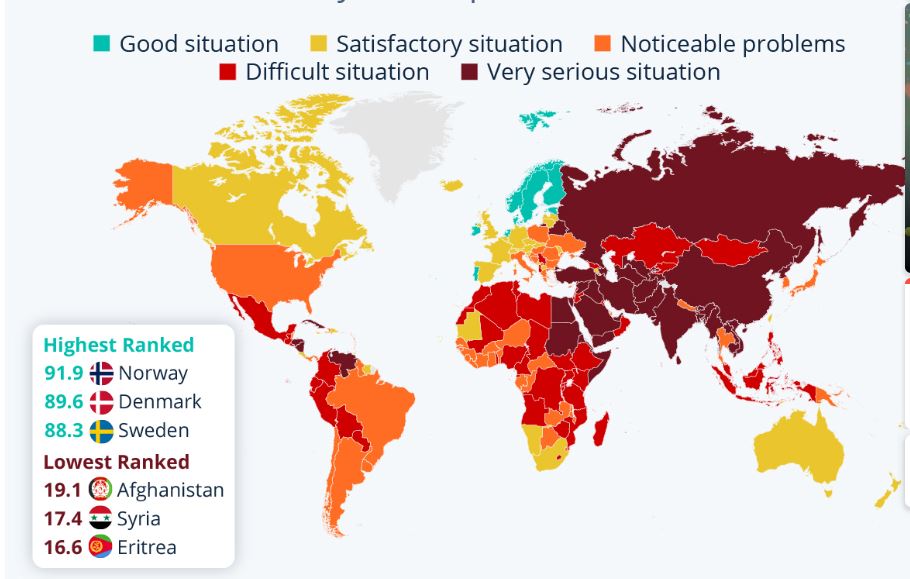Discourse Degradation: A Grim Reality
The recent general election has laid bare the disturbing degradation of public discourse. RSS chief Mohan Bhagwat’s poignant call for humility and decorum serves as an urgent reminder of the erosion of civility in our interactions. The media, driven by sensationalism, has normalized verbal aggression as the default response to political dissent. This alarming trend has transformed public discourse into a spectacle of vitriol, prioritizing personal attacks over meaningful dialogue.
Polarization’s Pernicious Grip
This phenomenon isn’t confined to India; it’s a global affliction plaguing liberal democracies. Philosopher Elizabeth Anderson’s insightful analysis sheds light on the root cause: the conflation of first-order and second-order moral claims. This leads to the dismissal of legitimate concerns as mere personal attacks, fostering a culture of impunity and irresponsibility. The prevalence of ad hominem attacks in televised debates and election campaigns exemplifies this troubling tendency.
Humility and Care: The Antidotes
Personal attacks not only drown out substantive discourse but also impede understanding. They erect barriers between societal factions, preventing the empathy and open-mindedness essential for constructive dialogue. The antidote lies in cultivating the virtues of humility and care. Recognizing our own limitations and acknowledging the perspectives of others are crucial steps toward bridging the widening chasm.
A Forgotten Imperative
Regrettably, the cultivation of character is often relegated to the personal sphere, deemed irrelevant to public discourse. This erroneous notion is a departure from the ideals of thinkers like Montesquieu, who emphasized the importance of education in nurturing citizens committed to the public good.
The Essence of Freedom of Speech
Historically, freedom of speech was viewed as a means to arrive at the truth through open dialogue and the exchange of diverse viewpoints. This necessitates tolerance, humility, and the willingness to engage with those holding opposing views. True freedom of speech extends beyond the mere right to speak; it encompasses the responsibility to engage in discourse constructively.
Reviving Intellectual Humility
In contrast to the modern emphasis on knowledge as power or individual achievement, traditional Indian thought championed intellectual humility. Knowledge acquisition was not an individualistic pursuit but a moral endeavor rooted in care for others. The Mahabharata exemplifies this ethos, emphasizing character over mere knowledge.
The Path Forward
Mr. Bhagwat’s call for humility in public discourse is a clarion call for a paradigm shift. By embracing humility, we can elevate public discourse from its current state of degradation to one characterized by respect, empathy, and a genuine quest for truth.
Key Learnings:
| Point | Description |
|---|---|
| Discourse Degradation | Public discourse has been reduced to personal attacks and vitriol, hindering meaningful dialogue. |
| Polarization’s Impact | The conflation of first-order and second-order moral claims fuels polarization and impedes understanding. |
| Humility and Care as Antidotes | Cultivating humility and care is essential for fostering constructive dialogue and bridging societal divides. |
| The Forgotten Imperative | The cultivation of character is crucial for public discourse but is often neglected. |
| The Essence of Freedom of Speech | True freedom of speech involves not only the right to speak but also the responsibility to engage constructively. |
| Reviving Intellectual Humility | Traditional Indian thought emphasizes intellectual humility as a moral endeavor rooted in care for others. |
| The Path Forward | Mr. Bhagwat’s call for humility offers a path toward elevating public discourse and fostering genuine dialogue. |

Sunil Garnayak is an expert in Indian news with extensive knowledge of the nation’s political, social, and economic landscape and international relations. With years of experience in journalism, Sunil delivers in-depth analysis and accurate reporting that keeps readers informed about the latest developments in India. His commitment to factual accuracy and nuanced storytelling ensures that his articles provide valuable insights into the country’s most pressing issues.



